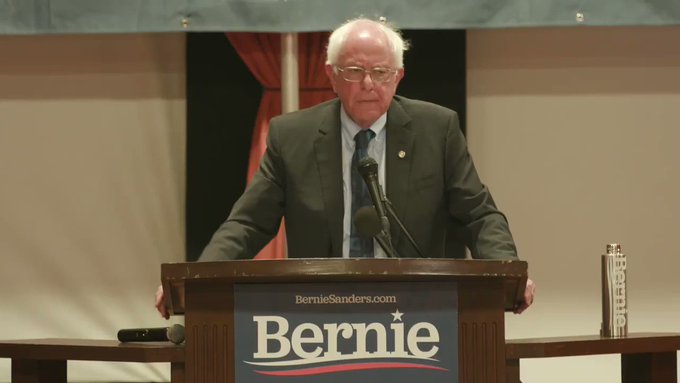Comparing Baseball Player Salaries to Teacher Pay Reveals Confusion on Basic Economics
Even if politicians don’t, sober and rational people should consider the facts.
Wednesday, June 26, 2019
As is often the case, the senator from Vermont was partially correct. Baseball players do, in some cases, get paid hundreds of millions of dollars. Where he is confused, and this is a very typical confusion for Sanders, is as to the source of that money.
Fans, Not The Nation, Pay Baseball Players
“The nation” doesn’t pay baseball players. Fans pay baseball players by buying tickets, merchandise, and products whose sellers advertise at games. Importantly, each person who contributes to paying the baseball players decides for himself whether the product baseball players are offering is worth the price.
And that individual choice is what keeps the entire industry consistently focused on satisfying the fans.Even if politicians don’t, sober and rational people should consider the facts.
Americans choose to spend over $70 billion a year on weddings, $32 billion a year on pizza, and $80 billion a year on lottery tickets. But Sen. Sanders isn’t questioning how much we do or do not pay for these things. He has singled out what we spend on teachers—not what we choose to spend, but what politicians tell us we will spend—and has decided for us that we should pay every teacher in the country at least $60,000. His casual disregard for economic and political realities matches the pandering we have come to expect from just about everyone running for president at this point in the campaign. Even if politicians don’t, sober and rational people should consider the facts.
Wages Are Determined by Supply and Demand
The political fact is that education is largely a local issue paid for by local property taxes. A president has precisely nothing to do with that. The economic fact is that politicians might decide what we will pay for a thing, but only the buyer and seller are competent to say what that thing is worth.
Are teachers important and is the product they provide valuable? Absolutely. But there are any number of jobs that are likely worth more. Grocers and sanitation workers come to mind. How do we know? Close the grocery stores for a week and you get riots. Close the schools for a week and you get Spring Break. Send the teachers home for three months and you have summer vacation. Send the sanitation workers home for three months and people die. But we don’t hear Sen. Sanders complaining that grocery clerks and garbage collectors aren’t being paid what they deserve, though they make less than teachers.
Like most politicians, Sanders’ primary skill isn’t thinking things through. His primary skill is winning elections.
The median teacher salary in the US is $58,000. That excludes typically generous state worker benefits and the job security of tenure. At these numbers, more than half of teachers currently earn less than what Sanders believes the “entry level” wage should be.
Bumping the starting salary to $60,000 would increase the cost of teachers by ten percent. And that’s assuming teachers who have worked their way up to earning more than $60,000 don’t demand raises, too, which they would. Raise those teachers’ wages proportionally, and nationwide, the cost of teachers would jump almost 60 percent—overnight. The fun doesn’t stop there. Since teacher pensions are often tied to their wages, Sanders’s plan could sink teacher pension plans into an ocean of red ink.
Like most politicians, Sanders’ primary skill isn’t thinking things through. His primary skill is winning elections. And he has determined that he can get votes by stirring up a fuss over teacher pay. If he really cared about teachers being paid what they deserve, he would push for teachers to be freed of the government and union bureaucracies under which they labor. Then maybe, just maybe, individual consumers would be better able to decide for themselves which teachers are worth what price—just like they do with baseball players.


